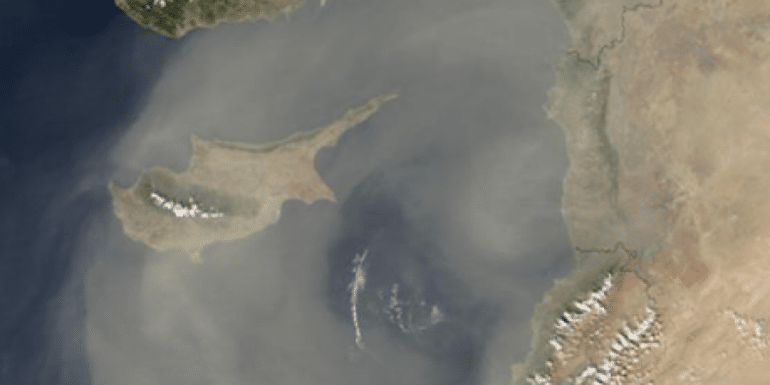The Medical Services and Public Health Services of the Ministry of Health remind the basic measures to prevent unwanted effects when there is an increased concentration of dust in the atmospheric air, according to the emergency bulletins of the Meteorological Service.
General population measures
Employers and employees should follow the instructions of the Labor Inspection Department as follows:
Avoid activities and physical exercise in open spaces.
Staying in open spaces should be kept to a minimum.
Use the protective mask for the mouth and nose, with a filter that holds the dust or alternatively a wet wipe.
It is pointed out that, in addition to the other many and serious effects of smoking on health, it also worsens the adverse effect of dust.
Avoiding smoking is recommended.
When there is symptomatology such as cough (dry or productive with expectoration – phlegm), dyspnea (difficulty breathing), irritation and/or runny nose (increased fluids) – irritation and/or increased tears from the eyes, it is recommended to contact or visit the attending physician or the Departments
Accidents and Emergencies (TAEP)
Groups of High Risk Individuals
People with Respiratory Problems and Heart Diseases
Kidney patients
People with Immune Deficiencies
Children and People over 65 Years
High-risk groups are more likely to experience symptoms due to increased dust in the ambient air. In these groups the symptomatology may develop more frequently and more strongly. Also, there is a possibility of worsening of symptoms due to their condition.
Recommendations for vulnerable people
1. They contact and visit the attending physician or the Accident and Emergency Departments (A&E) when:
I. Symptoms such as cough (dry or productive with sputum – phlegm), dyspnea (difficulty breathing), irritation and/or runny (increased fluid) nose – irritation and/or increased tearing of the eyes occur or worsen.
II. They need clarification on any doubts and adjustments to their medication.
2. They avoid unnecessary movements and limit their stay in the areas where there is an increased concentration of dust in the atmospheric air. Special care is needed when there is further stress with high temperature and humidity.
3. They use a protective mask in cases where a short stay outside is necessary.
4. They avoid physical exercise in open space.
5. They remain in well-ventilated and air-conditioned areas.
